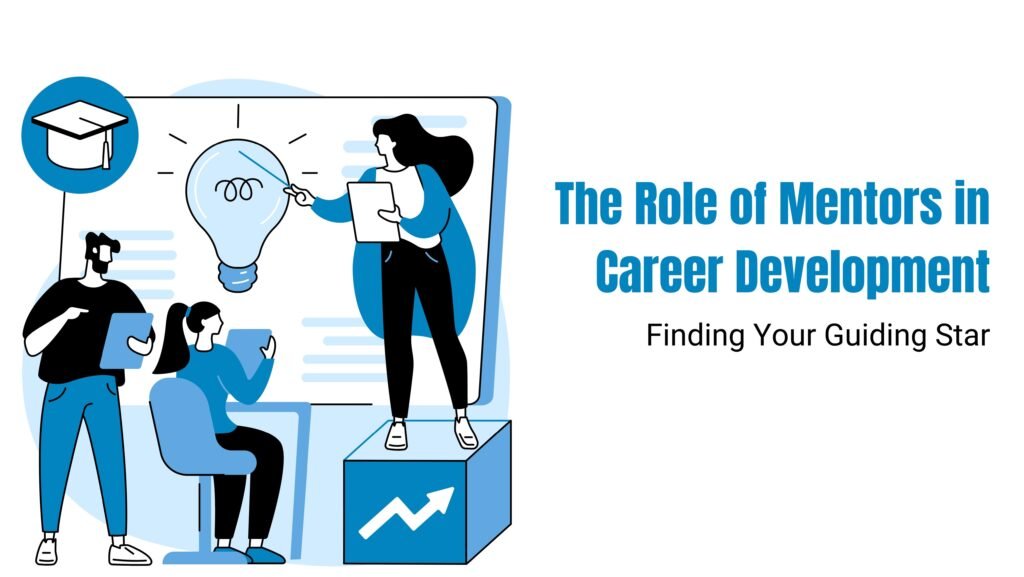Having a mentor in our ever-changing business world is like finding your guiding light in a big, sometimes noisy professional world. Whether you’ve just stepped into your career or you already know the ropes of your industry, mentors are important.
These mentors support you when you don’t know where to go, they’re great listeners when you have ideas, and they give you the knowledge to move forward. This article is all about mentoring, how it helps, how to find the right mentor, and how this relationship can work in different situations.
“If you cannot see where are you going, ask someone who has been there before”— J Loren Noris
So, let’s take a trip into the world of entrepreneurial success and hear how mentors are like guiding stars in your entrepreneurial journey. No matter if you are just starting out or a pro, the mentors are always there to show you the road.
The Mentor-Mentee Relationship
Now, let’s dive into what a mentor-mentor relationship is.
- Mentor: A mentor is like a wise friend or a guide at work. They’ve been around the block, they’ve had the experience, and they’re ready to share their knowledge and help you. Think of them as your professional assistant.
- Mentee: That’s you, or someone seeking the help of a counselor. You are eager to learn and grow in your career and have a mentor to support you.
In a mentorship relationship, there lies certain key elements for the benefits of this connection. These elements play a significant role in the foundation of a successful mentor-mentee partnership, providing a framework for growth and learning. Let’s explore into the essential components that make mentorship a transformative experience:
Learning: A mentor-mentee relationship is all about learning. You learn from your mentor’s experiences, their successes, and even their mistakes.
Support: Mentors provide support and encouragement. They’re there to cheer you on, especially when things get tough.
Feedback: Honest feedback is a big part of it. Mentors help you see where you can improve and what you’re doing well.
Networking: Mentors often introduce you to their professional networks. This can open up new opportunities for you.
Growth: The aim is to help you grow, not just in terms of skills but also in confidence and as a professional.
A mentor offers valuable guidance, drawing from their experience to help you navigate your career journey effectively. Their support gives you confidence, making you feel more capable of taking on significant challenges.
Mentors can also provide shortcuts, steering you away from pitfalls they’ve encountered before. Furthermore, by connecting with your mentor’s network, you gain access to fresh opportunities and industry connections, which can boost your career growth. Overall, having a mentor often paves the way for faster career advancement, as they assist you in setting and achieving your professional goals with precision.
The Impact of Mentors on Career Development
Mentors are beacons of wisdom, illuminating the path to career success. They share insights, provide valuable feedback, and help you set and achieve your career goals. With their guidance, you make the right decisions and move your career forward faster. It’s like having your own GPS for your business trips.
Let’s have a look on some real world examples to better understand the power of mentorship:
- Higher Earnings: Studies show that people having mentors tend to earn higher incomes over their careers. For instance, a report by Forbes found that people with mentors were promoted five times more often than those without.
- Entrepreneurial Success: In the business world, mentoring plays a vital role in entrepreneurial success. Entrepreneurs with mentors are more likely to establish and grow their businesses. Take the case of Mark Zuckerberg, who was mentored by Steve Jobs, leading to the creation of Facebook.
- Skill Development: A mentor can help you acquire specific skills, whether it’s leadership, technical expertise, or industry-specific knowledge. Look at the example of Warren Buffett, who was mentored by Benjamin Graham, helping him become one of the most successful investors in history.
Mentors are like personal trainers for your career skills. They not only guide you but also assist in polishing your abilities. They can help you identify areas where you need improvement, and then provide advice and opportunities for growth. Whether it’s mastering new technical skills, becoming a better communicator, or excelling in leadership, mentors play a pivotal role in your skill development and overall career growth.
How to find the right mentor?
When it comes to your career, having the right mentor can be a game-changer. This isn’t just about any mentor; it’s about discovering the one who aligns with your ambitions and values. Think of your mentor as your professional GPS, offering customized guidance and support on your unique journey.
Finding the right mentor often requires a bit of detective work. You have to discover the one who aligns with your ambitions. Here’s where and how to search for your ideal mentor:
- Within Your Workplace: Look around your current job or organization. Colleagues and senior professionals can be excellent mentors. They have a direct understanding of your company’s culture, goals, and challenges, making their guidance highly relevant.
- Professional Associations: Many industries have professional associations, groups, or societies. Joining these can be a goldmine for mentorship opportunities. Seasoned professionals within these associations often willingly guide newcomers.
- Online Communities: The internet is playing a vital role in helping you find the right mentor. LinkedIn, for instance, is a powerful platform for connecting with professionals in your field. Additionally, industry-specific forums and mentoring networks can be great places to search for mentors.
- Personal Network: Don’t underestimate the power of your personal connections. Friends, family members, or acquaintances might know someone who can guide you in your career, even your Friends and Family members can be your mentors. Networking within your social circles can reveal hidden mentorship opportunities.
Finding the right mentor isn’t just about the first step of discovering potential mentors; it’s about evaluating and selecting the one who aligns best with your goals and values.
- Make sure your career aspirations align with your mentor, engaging in candid discussions to ensure they are willing and able to support your journey.
- Investigate their track record, as personal success often indicates their ability to guide you effectively.
- Effective communication is essential, so engage in conversations to gauge their style and alignment with your preferences.
Furthermore, ensure there’s mutual respect and a shared willingness to invest time and effort in the mentorship, as a mentor who genuinely respects your aspirations and is enthusiastic about your success is a valuable find.
In your quest for the right mentor, it’s not just about finding any mentor but finding the one who truly resonates with your goals, values, and ambitions, as such a well-matched mentor can be an invaluable asset on your career journey, offering guidance, support, and wisdom to help you successfully navigate the professional world.
Conclusion:
In closing, finding the right mentor is like discovering a guiding star in your professional journey. A mentor offers personalized guidance, boosts your confidence, and helps you avoid career pitfalls. They open doors to new opportunities and foster your career growth. Whether you’re a beginner or a pro, mentors play a vital role in your success. Embrace mentorship, and let these guiding stars light up your career path.







